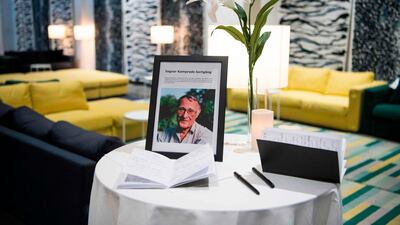Before the death of Ingvar Kamprad on Saturday at the age of 91, few would have known he was the man behind Ikea. Millions of people across the world likely learnt his name for the first time over the weekend while perched on self-assembled furniture they bought at one of 300-plus Ikea stores in 38 countries around the world. The great transformative products and brands of our age are all associated with the individuals who founded them: Microsoft with Bill Gates, Virgin with Richard Branson, Apple with Steve Jobs, Google with Segey Brin and Larry Page, Facebook with Mark Zuckerberg.
Ikea arguably has had as much of a revolutionary impact on the way we live as any of those companies. Yet Mr Kamprad managed to remain, despite his enormous wealth and eccentricities, surprisingly inconspicuous. Among those who knew him, he was notorious for his frugalities: he wore secondhand clothes, drove a secondhand car, flew economy and had a haircut only when he was travelling through a "developing country". His asceticism was integral to the entrepreneurial philosophy behind Ikea, a company he founded at the age of 17 and whose name derived from his own initials and those of his farm, Elmtaryd, and village, Agunnaryd, in Sweden. Mr Kamprad saw opportunity in the movement of millions of people from farmland to flats as Sweden embarked on a path of intensive modernisation in 1946. He made an unspoken deal with consumers: if you agree to assemble the flatpacks, I will keep the quality high and the costs low. His business gradually overhauled the aesthetics and altered the lifestyles of Swedes – and pretty soon, the rest of the world fell in love with Ikea's clean and inexpensive designs.
________________
Read more
IKEA founder Ingvar Kamprad dies aged 91
Remembering the man who made his brand a household name
Ikea and the UAE: a love affair that needed room to grow
________________
The first Ikea store in the UAE opened in Karama, Dubai, in 1991. UAE residents developed such a fondness for its products that, two decades later, Ikea opened its largest store in the Middle East on Yas Island. Assembling its furniture has become something of a cherished ritual of homemaking – whether it involves wrestling with a manual or the sense of accomplishment on completion. In 1976, the company founder put to paper the larger purpose of his business. "All nations", he wrote, "spend a disproportionate amount of their resources on satisfying a minority". Ikea's objective, he wrote, should be to "create a better everyday life for the many people". Millions of families, both in the UAE and abroad, will agree that he succeeded in that mission.
Follow The National's Opinion section on Twitter

